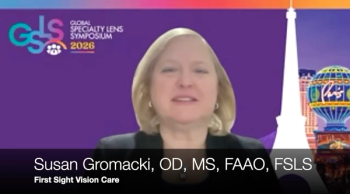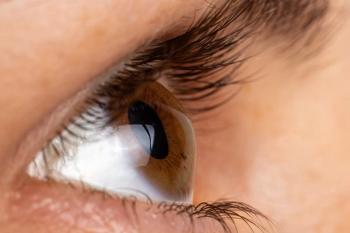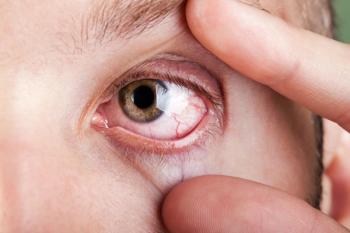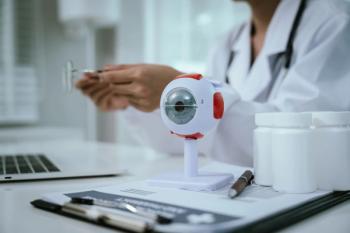
AOA 2023: Everything you need to know on intense pulse light
Shane Swatts, OD, reviewed the key points of his course on intense pulse light therapy.
Shane Swatts, OD, shares the key takeaways from his beginners workshop on intense pulse light, which took place at the 2023 AOA Optometry Meeting in Washington, DC.
Video Transcript
Editor's note: This transcript has been lightly edited for clairty.
Shane Swatts, OD:
Hi, my name is Shane Swatts, and I'm honored to be here as part of AOA. As usual, they're putting on an amazing event. We just finished a course on intense pulse light. It was a beginner's workshop on intense pulse light, which has quickly become the cornerstone of dry eye therapy.
A few of the things that we discussed were the importance of an FDA approval, we went over some off label and on label IPL treatments, and we also moved a little bit into the world of radiofrequency, which is moving into the eye care space. It has brought with it a lot of confusion in terms of what are the differences in the devices, so we laid that out. We also had a workshop where we had some hands-on, wet-lab training on how to use an IPL device, [and] some of the benefits both from a dry standpoint, and aesthetic benefits.
So, one of the other major points that came up was how to implement this into your practice. What we see a lot is doctors coming to events like this, believing in the technology, purchasing a device, [then] getting it back to their office, only to find that they're too busy to actually make it work. So unfortunately, that device will often go into a back room and sit, and they are not hitting their return on investment as they should. We talked a lot about techniques and strategies for implementing intense pulsed light into the practice, as well as consent forms and all of the logistical components that you need to get started in IPL.
Another important point that came across was the importance of home therapy. So we can do these treatments on patients in the office, but one of the things I often explain is what they do at home provides longevity to what we do in the office. So in our practice, we package everything together. If we're going to recommend a patient go through a treatment program, included in their treatment program are their nutraceuticals, such as HydroEye, which we recommend to most patients. There's a DERM mask, and there's other components that are really essential to maintaining those results at home.
So one of the things we recommend to all of our patients who are going through a treatment program are nutraceuticals and the importance of omega-3, in terms of maintaining the health of the meibomian glands and creating the oils that the meibomian glands are producing. I am a big fan of gamma-linolenic acid, so GLA, is one of the components of HydroEye, [which] is one of the reasons that's my top recommended brand. Again, we package this with pretty much every single treatment. In terms of when patients can come off of this, we recommend this on an ongoing basis. They don't just use this while they're going through a treatment plan, this is part of their ongoing maintenance, which is great in terms of outcomes and what the patients need. It is also very beneficial in terms of being a revenue stream for our practice because these patients are not just going online and ordering, they're ordering through our office. So, we have that revenue in addition to the other treatments and processes we're doing as part of their treatment program.
Newsletter
Want more insights like this? Subscribe to Optometry Times and get clinical pearls and practice tips delivered straight to your inbox.




























